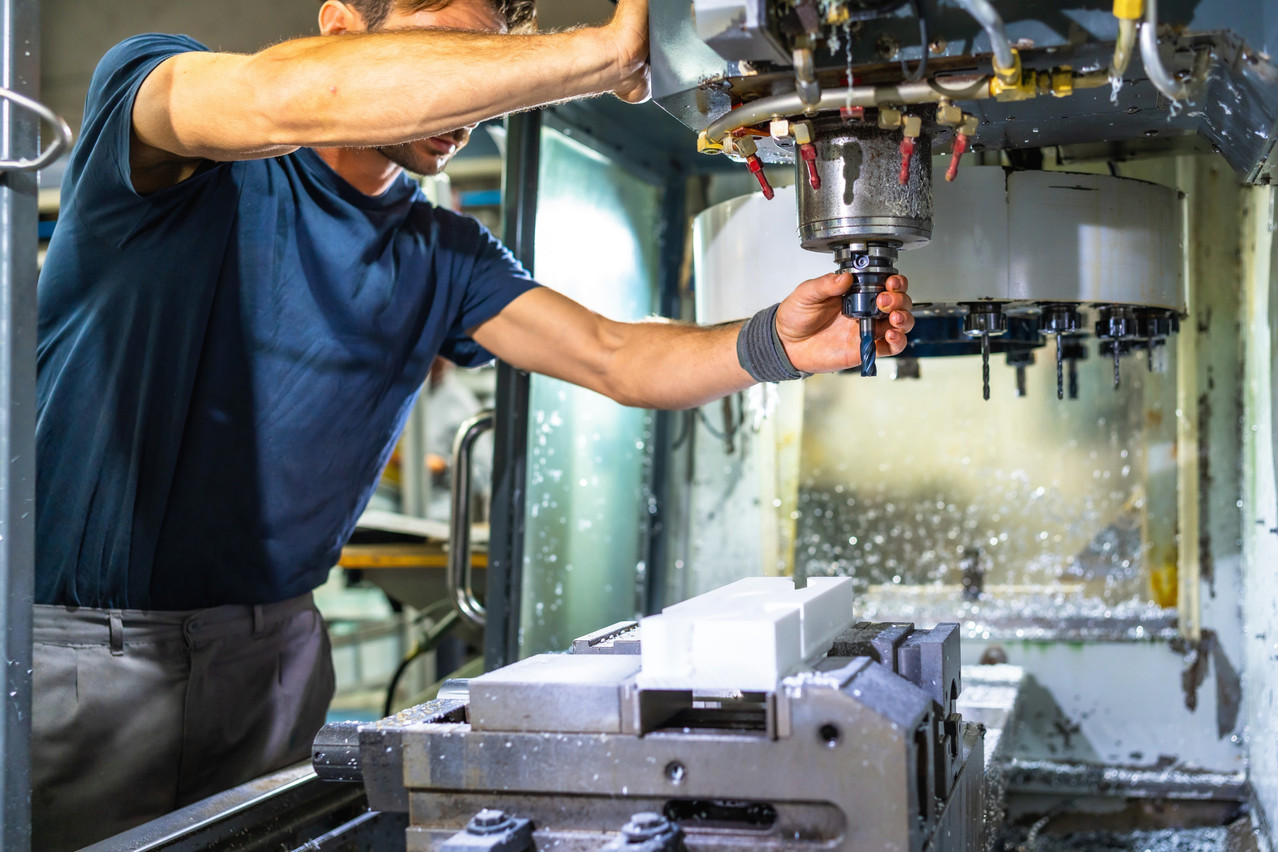An international market in limbo
According to the latest figures from the Chamber of Commerce, Luxembourg exported goods worth €15.5bn in 2023. These were mainly manufactured metal goods from the steel industry worth €3bn, other types of manufactured goods (€2.4bn), machinery and equipment (€2.9bn) and transport equipment (€1.7bn). As the Luxembourg market is fairly small, the majority of industrial companies--with a few exceptions like Rosport, which sells its products only within the grand duchy--are exporters. “Some are even 100% exporters,” says Fedil. Accumalux, for example, which specialises in the production of essential components for battery systems, such as boxes, covers and accessories, has only an international presence.

Source: ITC Trade Map; Visual: Maison Moderne
First-movers
“The industries are in a very complex situation at the moment,” says , director general of the Chamber of Commerce. “Should Europe be more protectionist, boycotting Chinese products? We’ve always been in favour of free trade, but it obviously has to be done on equal terms, and the big problem with setting up tariff wars is that everyone loses out because China will obviously retaliate. So if we do this, there will be no end in sight. And that will contribute to higher inflation. In the United States, it is clear that Trump’s policy will increase inflation. Luxembourg industry lives on free trade as we are a small country. We don’t have the market here anyway to develop an industrial company solely on our territory. For those that are present to continue to prosper, they need to specialise in very high added value products, in niche markets--products that the Chinese can’t imitate quickly, so you always have to be a little bit ahead of the game. Being a first-mover has always been our strength. We were first movers--we managed to launch a new product or service before anyone else.”
One of the upcoming issues for industrial companies will be the consequences of the protectionist measures announced by Donald Trump during the US presidential election campaign. Among other things, he is proposing to raise customs protection by 10% or even 20% on all products from all countries, and even by 60% on imports from China. Some are predicting a possible “world trade war” in 2025, a loss of global GDP and a general redeployment of international trade.
Did you know?
150,000m2 of glazing was needed to cover the famous Burj Khalifa tower in Dubai. The glazing was produced by Guardian Luxguard in Bascharage. The plant supplied 26,000 panels to cover the facade of the world’s tallest tower in Dubai, which stands 828 metres high and is a showcase for Luxembourg know-how. The glass can withstand winds of up to 250km/h. It is not the only Luxembourg company to have warmed up its machines for this tower. ArcelorMittal Differdange, renowned for its Histar beams used in the construction of extraordinary buildings, produced 3,000 tonnes of these beams for this building. ArcelorMittal was also involved in the construction of the One World Trade Center in New York. The structure of the tower rests on more than 20,000 tonnes of ArcelorMittal steel, including 12,500 tonnes of Histar beams from the Differdange plant. Another example is Ceratizit, the world’s leading manufacturer of ballpoint pens in Mamer. It is estimated that a person buying a pen has a 45% chance of finding a carbide pen ball produced in Luxembourg.
This article, , was written for the edition of , published on 29 January 2025. The content is produced exclusively for the magazine. It is published on the website to complete the Paperjam archive.
Is your company a member of the Paperjam Club? You can request a subscription in your name. Let us know via .
